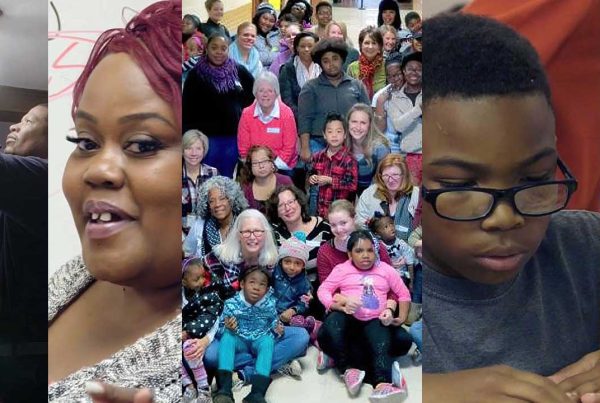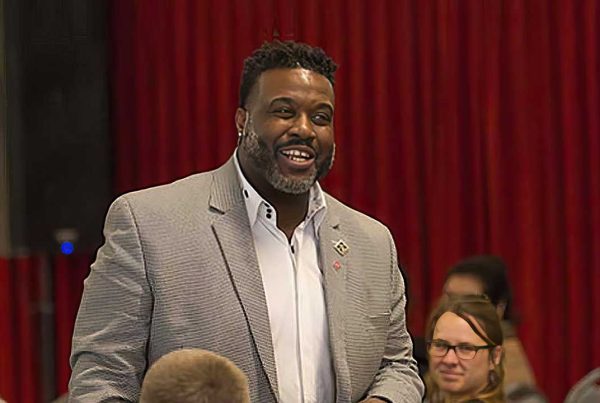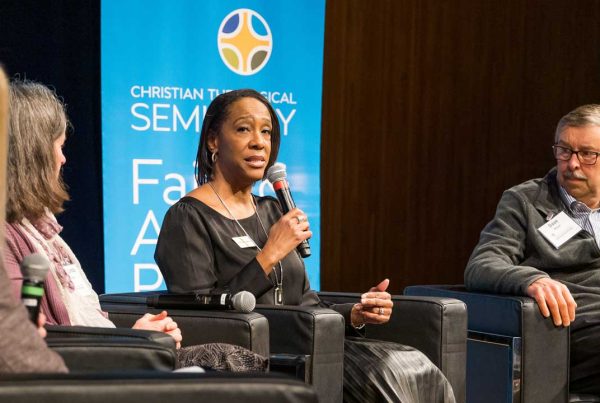Revelations in a Crisis
Unacceptable Fact of the Month:
Roughly 17.4 percent of Marion County residents are food insecure, which is 39 percent higher than the national food insecurity rate of 12.5 percent.
Times of crisis have a way of exposing good and bad in our society. The COVID-19 crisis has been no exception.
On the good side, we see the hope-generating power of collaborative community action. Organizations such as United Way of Central Indiana, Central Indiana Community Foundation and Lilly Endowment have jumped into action alongside community-based and faith organizations to fuel relief for those in need. Organizations usually focused on long-term initiatives rather than relief programs are helping with food distribution, utility payments, rent assistance and more. The result has been a dose of hope for people hit hardest by the virus’ economic impact.
But the pandemic has also exposed failings in our community. We see all too well how the gaps in our society can become chasms: The digital tools many of us now rely on for connection are in short supply in some neighborhoods. The financial cushions that keep many of us afloat don’t exist for families living in poverty. Transportation issues and stay-home directives cut off under-resourced families from healthcare, mental health services and more. Though many are doing heroic work, countless schools, libraries and community centers that act as lifelines have closed.
To those insulated from poverty, such gaps might seem hard to believe. But to those who have no safety nets, no back-up resources and no community power, those gaps gape broadly, making daily existence a struggle and suggesting that, when recovery comes, they’ll only be further behind.
This is why, even as we wrestle with the crisis in front of us, we must focus on the long-term goal of eradicating poverty. Even as we work to ensure that families can make it through this crisis, we must equip them for life after the crisis, support them with family stability measures and help them strengthen their skills. And, even as we focus on immediate needs, we must address root causes of poverty, including racism, incarceration and faltering faith.
These are challenging times, but we see cause for hope. We see it in the urgent, sincere desire to help. We see it in the recognition that some connections can reach across the gaps. And we see it in collaborations among government, nonprofit, faith and community groups. In those things – which we expect to see enduring beyond this crisis – we see the hope that every individual in our community might one day have the ability, opportunity and resources to overcome both daily challenges and unexpected crises. And, finally, we see a real hope that, one day, poverty will be eliminated.
Lindsey Nell Rabinowitch
Project Director, Faith & Action Project
Annual Grants Postponed
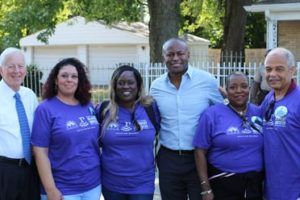 While Christian Theological Seminary and the Faith & Action Project remain focused on long-term poverty mitigation, we are postponing the annual Faith & Action Grant program until later this year in order to provide emergency-relief grants. (See next newsletter item.) Organizations planning to submit applications for the annual Faith & Action grants are encouraged to emulate the kind of collaboration Public Advocates in Community Re-Entry (PACE) and Overcoming Church have brought to bear on behalf of people re-entering the community after time in jail. The combination of secular and faith-based organizations allowed each organization to play to its strengths, said PACE Executive Director Rhiannon Edwards. “It brings all these supports into one place,” she said. “It’s very organic.” The new deadline for the first-round application for the annual Faith & Action Grant Program will be July 31st, with final applications due September 1st. For more information, go to http://www.cts.edu/faith-action/.
While Christian Theological Seminary and the Faith & Action Project remain focused on long-term poverty mitigation, we are postponing the annual Faith & Action Grant program until later this year in order to provide emergency-relief grants. (See next newsletter item.) Organizations planning to submit applications for the annual Faith & Action grants are encouraged to emulate the kind of collaboration Public Advocates in Community Re-Entry (PACE) and Overcoming Church have brought to bear on behalf of people re-entering the community after time in jail. The combination of secular and faith-based organizations allowed each organization to play to its strengths, said PACE Executive Director Rhiannon Edwards. “It brings all these supports into one place,” she said. “It’s very organic.” The new deadline for the first-round application for the annual Faith & Action Grant Program will be July 31st, with final applications due September 1st. For more information, go to http://www.cts.edu/faith-action/.
Emergency-Relief Grants Awarded
In response to the COVID-19 pandemic, Christian Theological Seminary’s Faith & Action Project is providing $75,000 in emergency relief grants to seven organizations whose poverty mitigation work includes mental health services and family stability measures.
Working with community networks, past Faith & Action grant recipients and others, CTS has identified seven organizations to receive these emergency relief grants which will be issued before April 30.
- Eastern Star Church ROCK Initiative $10,000
- Edna Martin Christian Center $10,000
- Julian Center $10,000
- MLK Center $10,000
- Shepherd Community Center $10,000
- Sandra Eskenazi Mental Health Center at Eskenazi Health $15,000
- Volunteers of America $10,000
Better Information and a Family Approach
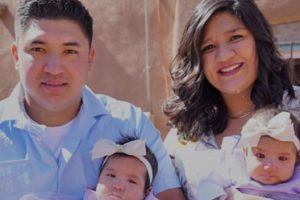 Why do so many families that rise out of poverty return a few years later? The Family Independence Initiative (FII), with operations in eight areas across the country, says the problem is “well-intentioned but inadequate governmental and charitable policies” that suffer from a lack of information, a resource gap and a misplaced focus on individual achievement. In Cincinnati, FII is hoping to reach 1,000 households in a variety of neighborhoods, intending to improve economic and social mobility by investing in families. Learn more here.
Why do so many families that rise out of poverty return a few years later? The Family Independence Initiative (FII), with operations in eight areas across the country, says the problem is “well-intentioned but inadequate governmental and charitable policies” that suffer from a lack of information, a resource gap and a misplaced focus on individual achievement. In Cincinnati, FII is hoping to reach 1,000 households in a variety of neighborhoods, intending to improve economic and social mobility by investing in families. Learn more here.
Worth Reading
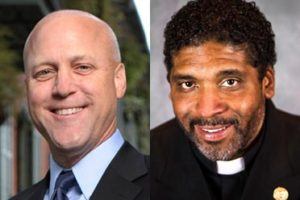 Poverty is the virus that puts us at COVID-19 risk, by William J. Barber II and Mitch Landrieu. Crises have a way of exposing America’s weaknesses, the authors contend, and COVID-19 is following the trend by exposing “our failure to address the needs of 140 million poor and low-wealth people.” How should we respond to this revelation? Barber, co-chair of the Poor People’s Campaign, and Landrieu, mayor of New Orleans from 2010 to 2018, argue that we must make a “commitment to become a democracy that works for all people – rich or poor.”
Poverty is the virus that puts us at COVID-19 risk, by William J. Barber II and Mitch Landrieu. Crises have a way of exposing America’s weaknesses, the authors contend, and COVID-19 is following the trend by exposing “our failure to address the needs of 140 million poor and low-wealth people.” How should we respond to this revelation? Barber, co-chair of the Poor People’s Campaign, and Landrieu, mayor of New Orleans from 2010 to 2018, argue that we must make a “commitment to become a democracy that works for all people – rich or poor.”
Special Note: New-look Newsletter
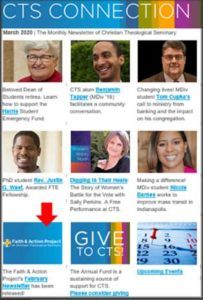 In the months ahead, you’ll receive your Faith & Action Program newsletter a little differently: It will come as part of the Christian Theological Seminary newsletter, which means you’ll have access to additional content on a monthly basis. The combined newsletter will look like the one pictured here, and when you receive it – starting in June – the Faith & Action newsletter will be in the area indicated by the red arrow in this image.
In the months ahead, you’ll receive your Faith & Action Program newsletter a little differently: It will come as part of the Christian Theological Seminary newsletter, which means you’ll have access to additional content on a monthly basis. The combined newsletter will look like the one pictured here, and when you receive it – starting in June – the Faith & Action newsletter will be in the area indicated by the red arrow in this image.
Mark your calendar for this important dates
July 31, 2020: Deadline for first-round Faith & Action Grant applications.
September 1, 2020: Deadline for second-round Faith & Action Grant applications.
September 29, 2020: Faith & Action Fall Event


